Jesus, during his sermon at the temple in Nazareth, made clear who He came for — the poor, the blind and the prisoners. (Luke 4:16-30). Does that describe you? Many readers’ first answer is likely “no”.  You may be financially comfortable and have more than enough to eat and keep warm. You may be in good heatlh. Most are not in jail of any kind. But apart from the salvation that Christ brings, you are poor, you are a prisoner, you are blind and oppressed. Do you realize there are no personal resources to which you can turn, no amount of good deeds or rule following that can solve your imminent deadly dilemma. You must come to see the truth of these things in order to turn to the One who can deliver you. Those listening to Jesus’ sermon that day did not see themselves that way and they drove Jesus from the temple and threatened his life. Will you drive him out too?
You may be financially comfortable and have more than enough to eat and keep warm. You may be in good heatlh. Most are not in jail of any kind. But apart from the salvation that Christ brings, you are poor, you are a prisoner, you are blind and oppressed. Do you realize there are no personal resources to which you can turn, no amount of good deeds or rule following that can solve your imminent deadly dilemma. You must come to see the truth of these things in order to turn to the One who can deliver you. Those listening to Jesus’ sermon that day did not see themselves that way and they drove Jesus from the temple and threatened his life. Will you drive him out too?
Sermon Recaps
Pastor’s Blog: God Shares His Secret to a Successful Marriage
 The world and God have different views on the recipe for a good marriage. The world might say that couples need “chemistry”. God takes a different view. He says the covenant that men and women make with one another is what a good marriage is based upon. Spouses honor one another and God by understanding and honoring that covenant.
The world and God have different views on the recipe for a good marriage. The world might say that couples need “chemistry”. God takes a different view. He says the covenant that men and women make with one another is what a good marriage is based upon. Spouses honor one another and God by understanding and honoring that covenant.
God is constantly trying to change us into the persons He created us to be. He uses marriage for this purpose. Recognizing these things provides an entirely new perspective on marriage. Marriage is a unique, intense form of Christian fellowship. Spouses are called upon to submit their self-interests in deference for God’s purpose and for one another. That certainly is not easy – especially with the world trying to influence how spouses view their marriage roles and what to expect. Focusing on God and His purpose for spouses is a tremendous help in weathering the inevitable challenges of marriage.
Ephesians 5:22-33. #marriage
ASCENSION YOUTH TRIP — CEDAR POINT
Cedar Point/Point Fest is coming up on Saturday, September 19. This is going go be a blast!!!!! We get to ride all day, plus concerts will be going on all day as well on the stage set up by Soak City. More info here. Wanna go? Email us at info@ascensionpgh.com.
Pastor’s Blog: Put On Your New Self
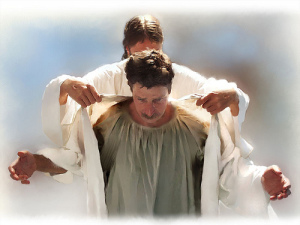 Need to make some changes in your life? Big changes? Do you even know what changes you need? If you feel deep down that something isn’t right, that your life is unhappy in a fundamental way or that you are lacking deep satisfaction, you probably know that something needs to change. God wants us to change from the inside. He wants us to “put off” our old self and “put on” our new self. Ephesians 4:22-24. That new self involves a life in active relationship with God. Change is easier said than done, right? Absolutely. But not only has Christ made your new self already possible and attainable, He gives you the resources to make the changes. He’s inviting you to have the joy and satisfaction that you are seeking. Will you accept His invitation?
Need to make some changes in your life? Big changes? Do you even know what changes you need? If you feel deep down that something isn’t right, that your life is unhappy in a fundamental way or that you are lacking deep satisfaction, you probably know that something needs to change. God wants us to change from the inside. He wants us to “put off” our old self and “put on” our new self. Ephesians 4:22-24. That new self involves a life in active relationship with God. Change is easier said than done, right? Absolutely. But not only has Christ made your new self already possible and attainable, He gives you the resources to make the changes. He’s inviting you to have the joy and satisfaction that you are seeking. Will you accept His invitation?
Camp Discovery VBS
Ascens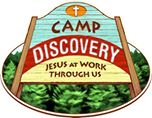 ion will be conducting vacation Bible school this summer. The theme is Camp Discovery. July 13-16, 5:45-8:15 p.m. Ages 3 to grade 6 are welcome to register on-line here. For more information, please contact us by email at info@ascensionpgh.com or telephone at 412.364.4463.
ion will be conducting vacation Bible school this summer. The theme is Camp Discovery. July 13-16, 5:45-8:15 p.m. Ages 3 to grade 6 are welcome to register on-line here. For more information, please contact us by email at info@ascensionpgh.com or telephone at 412.364.4463.
At Camp Discovery, kids have fun as they explore the Bible, make new friends, sing songs, and learn how Jesus works through them in their everyday lives. Campers discover 5 Bible truths that excite and challenge them. Jesus, their True North, gives them the wisdom and the courage to step out in faith and serve—whether they’re at school, playing with friends, or helping out at home.
Ages 3-5 Designed for children who have not yet attended kindergarten, the Early Childhood program features the same Bible lessons as the elementary program and youth and adult Bible study, plus activities and games designed just for them. Chester the Squirrel even makes an appearance to help them learn!
Ages K – Grade 5 Never before have kids experienced anything like Camp Discovery. At this camp, kids read real Bible stories about real people to learn real life lessons from Scripture. From the Opening to the Closing, every aspect of VBS is designed to help them better understand the Bible and grow in their faith.
We hope that you’ll send your child to join in the fun!
Mothers of the Bible — Eunice
 Our fifth and final mother of Bible that we”ll examine this year is Eunice, the mother of Timothy. As Paul thought fondly of Timothy and his sincere faith, he was reminded that such faith also dwelt first in Timothy’s grandmother, Lois, and in his mother, Eunice. We don’t know when these women had come to faith in Christ. Even though they had Greek names, at least Eunice was a Jewish believer (Acts 16:1). Perhaps Lois had been converted in Jerusalem on the Day of Pentecost and had come home to tell her daughter. Or, perhaps both women were devout Jews who responded to Paul’s preaching when he visited Lystra, their city. But the implication is that their faith pre-dated that of Timothy.
Our fifth and final mother of Bible that we”ll examine this year is Eunice, the mother of Timothy. As Paul thought fondly of Timothy and his sincere faith, he was reminded that such faith also dwelt first in Timothy’s grandmother, Lois, and in his mother, Eunice. We don’t know when these women had come to faith in Christ. Even though they had Greek names, at least Eunice was a Jewish believer (Acts 16:1). Perhaps Lois had been converted in Jerusalem on the Day of Pentecost and had come home to tell her daughter. Or, perhaps both women were devout Jews who responded to Paul’s preaching when he visited Lystra, their city. But the implication is that their faith pre-dated that of Timothy.
Timothy’s father was apparently a Greek unbeliever (Acts 16:1). We have no clue as to why a godly woman of faith like Eunice would marry a pagan man. The Old Testament is very clear that Jews should not marry outside the faith. Perhaps Eunice, though raised by Lois in a faithful Jewish home, went through a time of rebellion, during which she got married, but later came to faith in Jesus as Savior and Messiah. We can only speculate.
We do know that the Bible warns a believer about marrying an unbeliever. But Eunice’s story is in the Bible to give hope to women in mixed marriages. If her son, Timothy, could grow up to follow the Lord as he did, then God can do the same for your children, even if your husband is not a believer. While God intends for the father to take the lead in the spiritual training of the children, the mother can have a great influence even in situations where the father is passive or hostile to God.
Mothers of the Bible — Naomi
 Naomi’s story had a bleak beginning. She was a foreigner in Moab, a country near to, but hostile to, her native country Judah. Her life wasn’t always so bleak. She had been a married woman with two grown sons – in other words comfortably off and secure. Naomi means “pleasant” just like her life but then she lost everything. After leaving Judah to escape a famine, her husband died and so did her two fine sons and she had no grandchildren. When she eventually returned to her native village to try and salvage something of her life, the years were etched into her face. ‘Can this be Naomi?’ they asked. Naomi’s response revealed her state of mind: “don’t call me Naomi (pleasant); call me Mara (bitter) instead. The years have been unkind to me. I’ve lost everything.”
Naomi’s story had a bleak beginning. She was a foreigner in Moab, a country near to, but hostile to, her native country Judah. Her life wasn’t always so bleak. She had been a married woman with two grown sons – in other words comfortably off and secure. Naomi means “pleasant” just like her life but then she lost everything. After leaving Judah to escape a famine, her husband died and so did her two fine sons and she had no grandchildren. When she eventually returned to her native village to try and salvage something of her life, the years were etched into her face. ‘Can this be Naomi?’ they asked. Naomi’s response revealed her state of mind: “don’t call me Naomi (pleasant); call me Mara (bitter) instead. The years have been unkind to me. I’ve lost everything.”
Naomi’s story is not unique. She belongs to a large sisterhood of mothers who have lost children they loved. There are no words to describe the loss. There are no remedies to fully heal the soul. There is no later joy to fill the void of lost children. There are no Mother’s Day flowers for those whose children have died. There would be no Sarah-like miracle for her; no surprise pregnancy in old age. She would never have children again. She had only her pagan daughters-in-law Orpah and Ruth. Ruth had inherited nothing and had nothing of value. Her only choice was to return to her home village where she owned a little piece of land and where her relatives still resided. She gave her daughters-in-law the choice of coming with her or returning to their own native lands. Orpah returned to her land but then something amazing happened. Ruth asked her mother-in-law to take her along with her back to Israel. She wanted to convert from a pagan Moabite to a believer in God. Why would she do that? Why not send her mother-in-law, who was so bitterly depressed, back to the land from which she came? Why did she want to be like her? Because Ruth saw in Naomi, in the midst of her grief and bitterness, a God who was powerful . . . and she wanted that God.
Mothers of the Bible — Jochebed
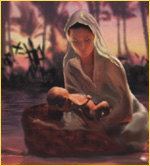 Our third mother of the Bible is Jochebed, the mother of Moses. Her appearance is short and we are not told much about her, but one trait stands out: trust in God.
Our third mother of the Bible is Jochebed, the mother of Moses. Her appearance is short and we are not told much about her, but one trait stands out: trust in God.
The Jews had been in Egypt 400 years. The Pharaoh in the opening of the book of Exodus was afraid of the Jews because there were so many of them. He feared they would join a foreign army against the Egyptians or start a rebellion. He ordered all male Hebrew babies to be killed.
When Jochebed gave birth to a son, she saw that he was a healthy baby. Instead of letting him be murdered, she took a basket and coated the bottom with tar, to make it waterproof. Then she put the baby in it and set it among the reeds on the bank of the Nile River. At that same time, Pharaoh’s daughter was bathing in the river. One of her maidservants saw the basket and brought it to her.
Miriam, the baby’s sister, watched to see what would happen. Bravely, she asked Pharaoh’s daughter if she should get a Hebrew woman to nurse the child. She was told to do that. Miriam fetched her mother, Jochebed—who was also the baby’s mother—and brought her back.
Jochebed was paid to nurse and care for the boy, her own son, until he grew. Then she brought him back to Pharaoh’s daughter, who raised him as her own. She named him Moses.
Jochebed showed great trust in God’s faithfulness. Two lessons emerge from her story. First, many unwed mothers refuse to have an abortion, yet have no choice but to place their baby for adoption. Like Jochebed, they trust God to find a loving home for their child. Their heartbreak at giving up their baby is balanced by God’s favor when they obey his command not to kill the unborn.
The second lesson is for heartbroken people who have to turn their dreams over to God. They may have desired a happy marriage, a successful career, developing their talent, or some other worthwhile goal, yet circumstances prevented it. We can only get through that kind of disappointment by turning it over to God, like Jochebed put her child in his care. In his gracious way, God gives us himself, the most desirable dream we could ever imagine. Like Jochebed, we won’t always foresee God’s purpose in letting go, but we can trust that his plan is even better.
Mothers of the Bible — Sarah
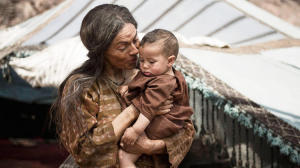 Second in our list of mothers is Sarah. Sarah lived generations after Eve. She was a truly amazing woman. Sarah was absolutely gorgeous. The Pharaoh of Egypt wanted to recruit her for his harem, as did another king named Abimelech. She was beautiful on the inside as well. The Apostle Peter held her up as an example to all women: “Cultivate inner beauty, the gentle, gracious kind that God delights in. The holy women of old were beautiful before God that way, and were good, loyal wives to their husbands. Sarah, for instance, taking care of Abraham, would address him as “my dear husband.” You’ll be true daughters of Sarah if you do the same, unanxious and unintimidated.” (1 Peter 3:3-6 The Message).
Second in our list of mothers is Sarah. Sarah lived generations after Eve. She was a truly amazing woman. Sarah was absolutely gorgeous. The Pharaoh of Egypt wanted to recruit her for his harem, as did another king named Abimelech. She was beautiful on the inside as well. The Apostle Peter held her up as an example to all women: “Cultivate inner beauty, the gentle, gracious kind that God delights in. The holy women of old were beautiful before God that way, and were good, loyal wives to their husbands. Sarah, for instance, taking care of Abraham, would address him as “my dear husband.” You’ll be true daughters of Sarah if you do the same, unanxious and unintimidated.” (1 Peter 3:3-6 The Message).
She was adventurous. She was a pioneer who left her home country and moved to another country and began all over again, leaving everybody she knew behind. She was also infertile. The one dream of her life was to become a mother, and she couldn’t do it. God promised Sarah a miracle. When she was 90 years old God announced that she would bear a son. Her reaction to God’s promise that she would have a son was to laugh, as memorably recorded in Genesis 18. God had the last laugh though. She did give birth to a son, and her lineage would include Jesus Christ himself. She lived a long life of 127 years.
Sarah learned a lesson for every mother to learn, and that is that God does the impossible. He can bring victory to what appears to be the most hopeless of situations.
Mothers of the Bible — Eve
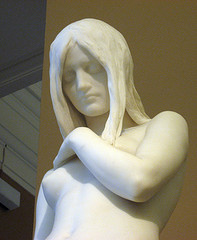 Mother’s Day is just a week away! We hope you’ll take some time this coming weekend to pay respects to your mother—or if that isn’t possible, to somebody in your life who embodies the grace and wisdom we associate with godly mothers.
Mother’s Day is just a week away! We hope you’ll take some time this coming weekend to pay respects to your mother—or if that isn’t possible, to somebody in your life who embodies the grace and wisdom we associate with godly mothers.
The Bible speaks highly of mothers who raise children and guide their families in a righteous manner; in the oft-quoted Proverbs 31, the “wife of noble character” is honored by her husband and children for her virtues. Mothers and matriarchs of the Bible exhibit qualities that all of us, male or female, parent or not, should strive to emulate. This week we’ll tell you about some of the wonderful mothers of the Bible. Appropriately, we’ll start of with Eve, the very first mother.
Eve is the first woman in the Bible and her story is famous. God created the universe, the earth, animals and two humans. God named the man Adam; Adam named his wife Eve. Adam and Eve had a marriage that was made in heaven and was lived out in paradise. But paradise was lost when this first couple succumbed to a temptation to sin that was offered by Satan. They sinned against God and contaminated not only their own lives but the rest of the human race. Although Adam was equally guilty, Eve has gotten more of the blame.
Her motherhood was in the forefront, before the fall. Her motherhood is what her husband wanted us all to remember about her. The first time her name is mentioned in the Bible is in a quote from Adam in Genesis 3:20: “Adam named his wife Eve,
because she would become the mother of all the living.”
Modern mothers can learn from the Bible’s lesson about Eve. Whether you make small mistakes or great mistakes, what you are most remembered for is being a mother who impacts the lives
of others.
Here is a link to more about Eve’s story.
